This post contains affiliate links from which I may receive a small commission, at no extra cost to you. In no way does this affect my opinion or the information I provide on the product. Please read my disclaimer for more info.
2020 has arrived and after the holiday feasts, it’s time to get your New Year’s resolutions in order!
While I highly recommend taking advantage of the new year to start fresh with your nutrition and health journey, here’s what you shouldn’t do— try to DETOXIFY your body.
What?
I know, it’s a very alluring concept. Drink a few juices and teas for a couple weeks, and you’ll reset your entire body, completely overriding all your past indulgements!
Well, it doesn’t work that way.
Following a detox diet is useless at best (you’ll lose your money!) and downright dangerous at worst. Here’s the scientific truth.
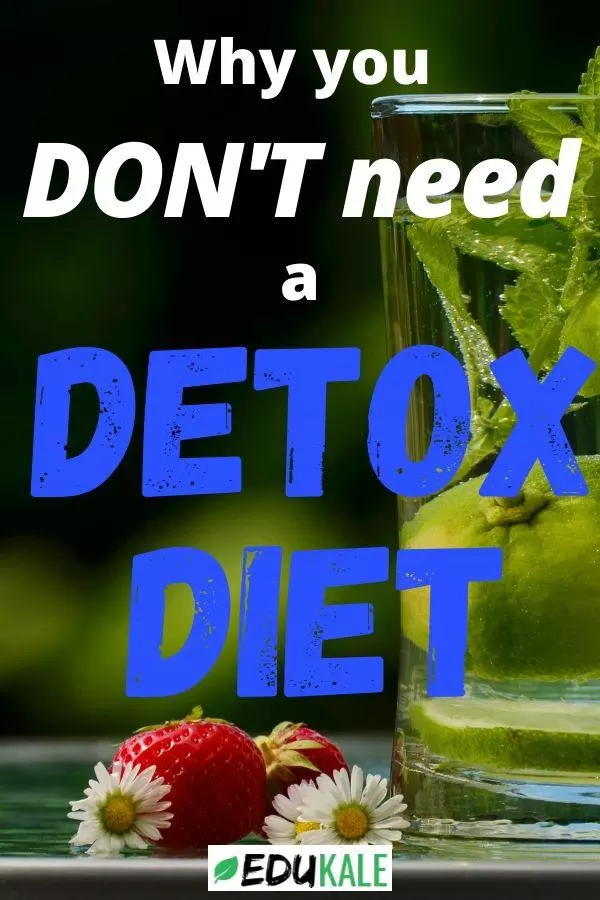
What is a detox diet?
A detox diet is a popular short-term dieting strategy that promises to eliminate harmful toxins from your body. It also claims to promote health and weight loss.
These “cleanses” are recommended because of potential exposure to toxic chemicals from your diet or your environment. They can include drinking only juices, smoothies, teas, or detox water in replacement of actual food.
For some, it can mean only adding a few of those beverages to their diet plan, without completely stopping their meals. Others prefer replacing the drinks with a certain food, such as grapefruit or apples, and eating only that for a period of time.
Some variations also include taking pills for a sort of colon cleanse.
However, whatever they entail, detox diets aren’t actually necessary.
Why you don’t need to detoxify your body.
Guess what, your body has a natural detoxifier…your liver. It basically either converts toxins from your body into non harmful substances, or excretes them.
Your kidneys also filter your blood, removing any waste. Shockingly, this happens even if you’re not sipping on detox tea.
Research has shown that there just isn’t enough scientific evidence to say that detox diets have any benefits. The few studies that have shown that detox diets promote body detoxification are actually very flawed.
With the exception of some plants or herbs which could have detoxification properties, the rest doesn’t have any scientific basis.
These diets revolve around removing toxins, yet the term is so vague it’s impossible to scientifically measure effectiveness.
Any detox pills that may be marketed to you online haven’t been tested in clinical trials and aren’t regulated, so there can be no proof that they work at all.
In addition, these diets claim to make you lose weight fast. Technically, the numbers on the scale could decrease. But the only thing you would actually be losing is water, not fat.
After the cleanse, you might even find yourself gaining weight from binging after being unhealthily restricted. In general, any diets promising super fast weight should be avoided.
You can read more about why you shouldn’t lose weight too fast HERE.
Furthermore, there’s no evidence that these diets can fix liver damage, like they often promise. So the products claiming to effectively detox your body, make you lose weight, and boost your health only want to make money.
If you go for the juice or grapefruit diet, you might not lose your money but you will have an unpleasant experience for very little gain. In fact, the experience might even be harmful to you.
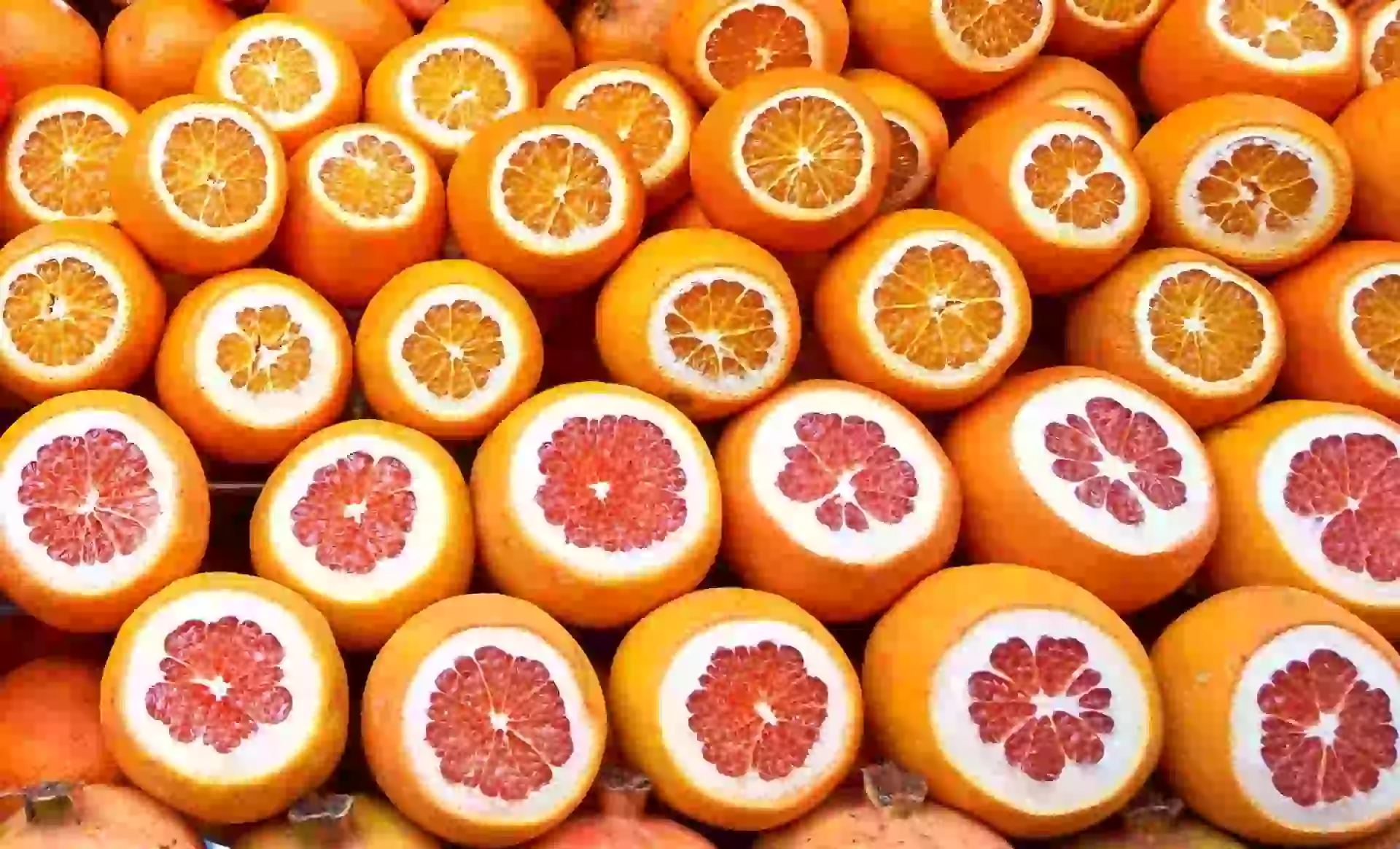
Why it can be dangerous to detoxify your body.
First of all, these detox diets lack many components of a healthy nutrition. They contain too little calories, and don’t meet the macronutrient requirements.
This can have adverse effects, such as low energy, low blood sugar levels, fatigue, dizziness, muscle breakdown, getting sick … It can even slow down your metabolism lastingly, actually making you gain weight long term.
In addition, many people take “detox pills” to help their liver and colon, which could instead be doing them harm. In general, dietary supplements aren’t very regulated and send around 23 thousand people to the emergency room each year in the US.
These pills can also contain laxative effects, causing diarrhea and depleting your body from nutrients.
Finally, by trying too hard to flush out the bad toxins from your body, you might end up flushing out the good bacteria which are there to protect it. These detox diets can mess up your body’s balance, such as your electrolytes, and upset your microbiome.
While detox diets are either useless or dangerous, there are other ways to support your liver.
How to protect your liver without “detoxifying” it.
As usual, moderation is the key. After a week of heavy eating, you can have a smoothie for breakfast and eat light but balanced meals for a few days. This can be good for replenishing your body.
But drinking only liquids and pills, or highly restricting calories and certain foods for weeks is a big no-no. If you want to support your liver, there are a few healthier things you can do.
First of all, don’t drink too much alcohol. (No more than two drinks a day for men, and one for women ).
Secondly, it’s important to eat healthily and care for your body. Consuming a very excessive amount of calories and having a sedentary lifestyle can be risk factors for developing a non-alcoholic fatty liver disease.
In addition, eating plenty of fruits, vegetables, and grains brings you a lot of fiber for healthy digestion. You can read more about the benefits of fiber and find a list of fiber-rich foods HERE. This removes the use for laxative pills, colon cleanses etc.
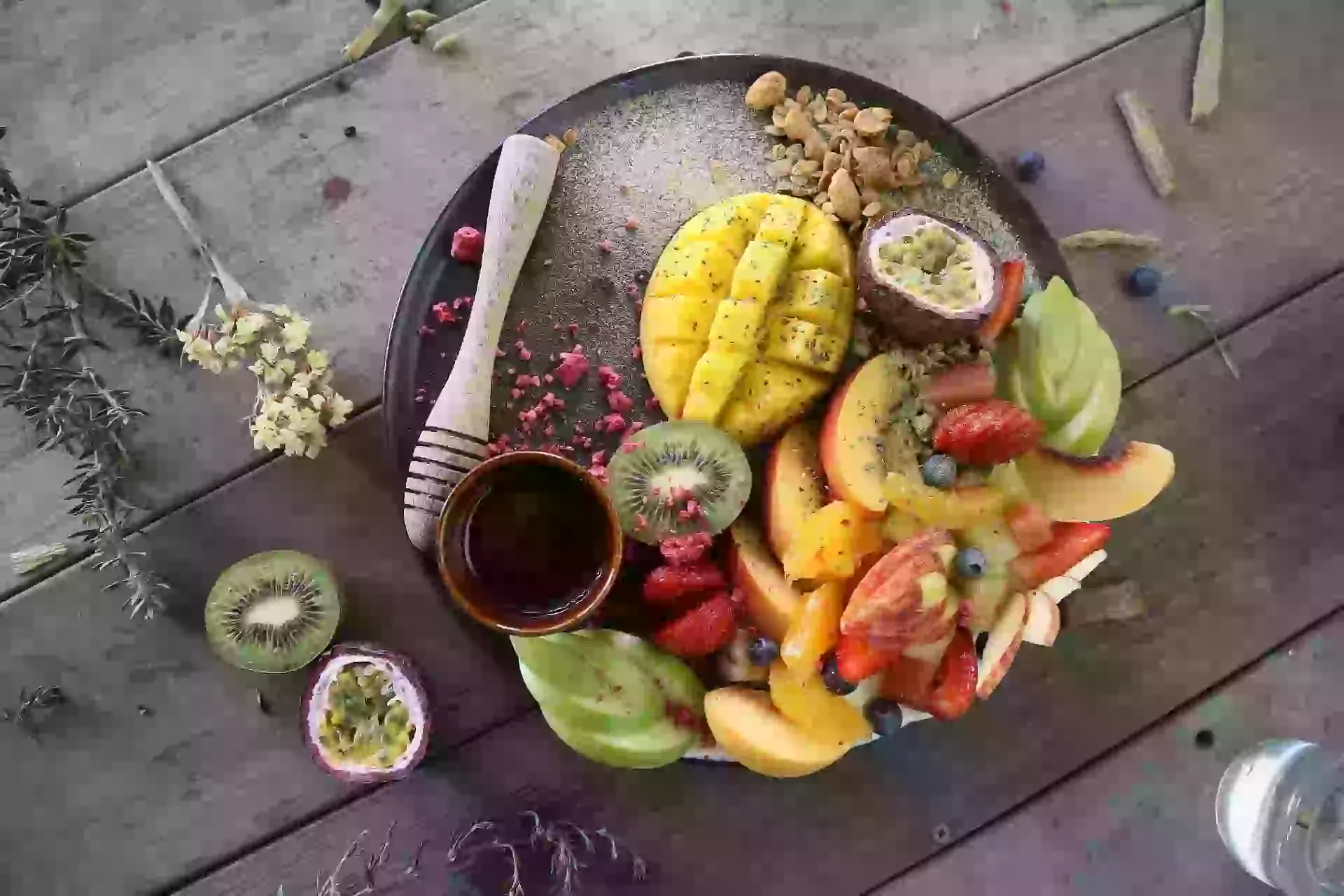
Detox diets in conclusion
If you’re healthy, you don’t need to detoxify your body to remove any toxins: it is already doing that for you.
Unless you have a blockage of some sort— which would require an actual medical intervention— detox juices and cleanses aren’t going to do much good.
Worse, they could even cause harm.
As usual, the best solution is to eat healthy, balanced meals and to exercise regularly. A plethora of Edukale articles can help you do just that!
-Lucie
If you’re interested in nutrition, its impact on our health, and the science behind it, you should definitely read How Not to Die. In this book, Doctor Michael Greger, founder of Nutrition Facts, examines the top causes of death in America and explains how your diet can prevent— and in some cases even reverse— them. His advice is all backed by science and he writes in a very clear and entertaining way. This book isn’t a list of what you already know. It will teach you the keys to living a long healthy life, in a simple and practical way, and without spending fortunes on supplements and pills!
PLUS if you want to take it a step further, you can check out the How Not to Die Cookbook to implement the advice easily!

Welcome!
I'm Lucie, the nutritionist behind Edukale! If you'd like to learn more about me, click HERE !
Read More!
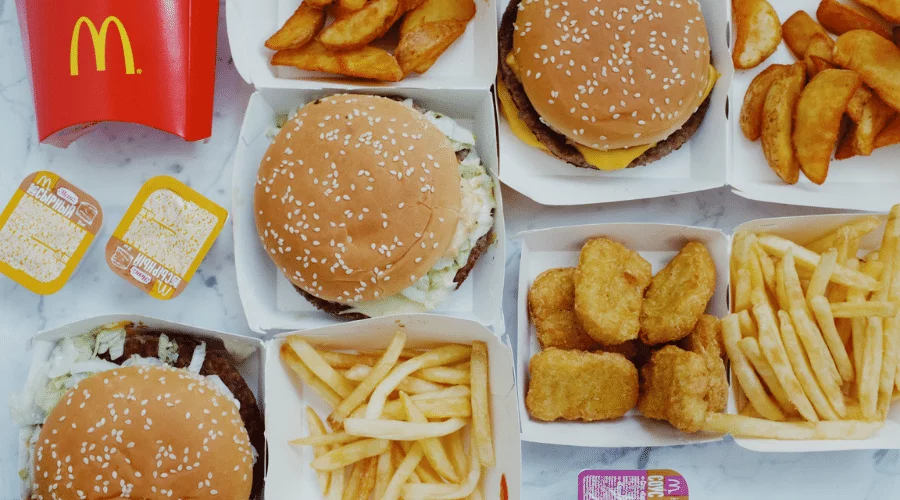
The truth about processed foods
You’ve probably heard that it’s best to reduce your intake of “processed foods” for healthy eating, and increase your intake of whole foods for optimal health.

The Best Foods to Fight Fatigue
Do you feel like you’re always tired and that you need multiple coffees to get you through the day?
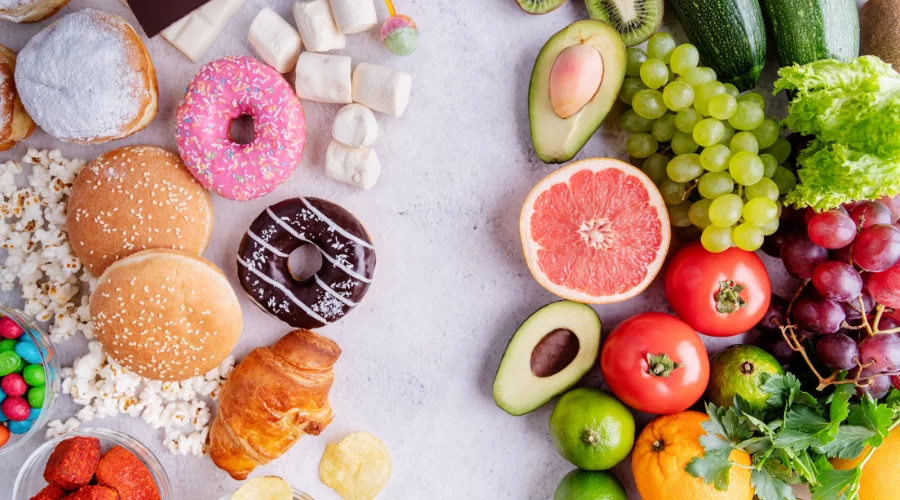
how to find the balance between healthy eating and dieting
It can be hard to find the right balance between healthy eating and dieting without becoming obsessed with food.
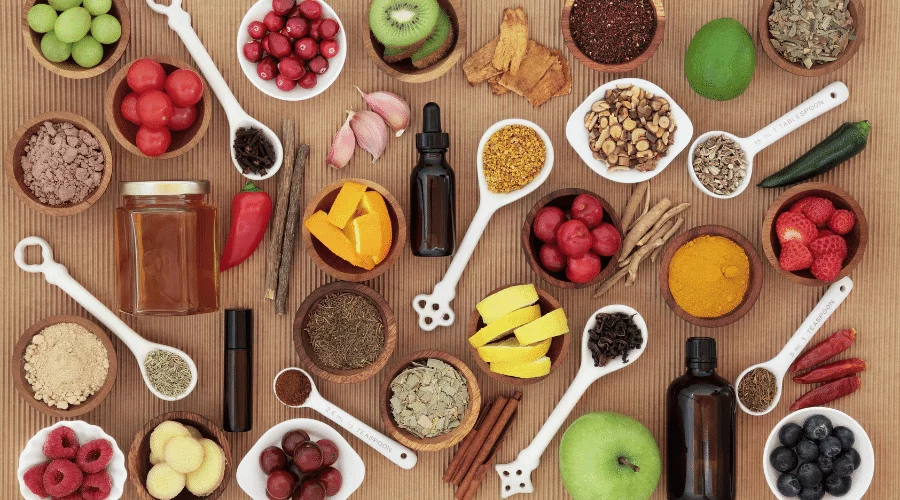
Can you use food as medicine?
“Let food be thy medicine, and let medicine be thy food.” We’re all familiar with this quote attributed to Hippocrates, and we all know the huge impact our food choices have on our health.
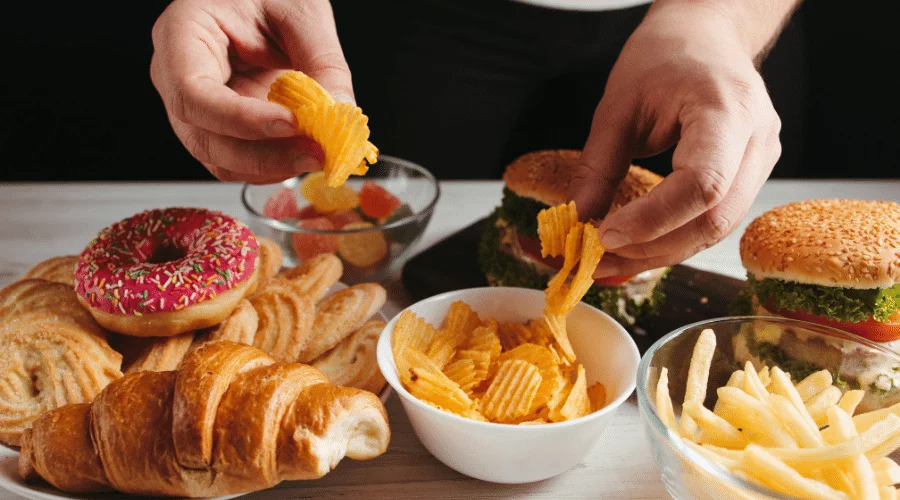
How to finally stop overeating for good!
Overeating means eating past your body’s actual needs, and it can be rather uncomfortable.
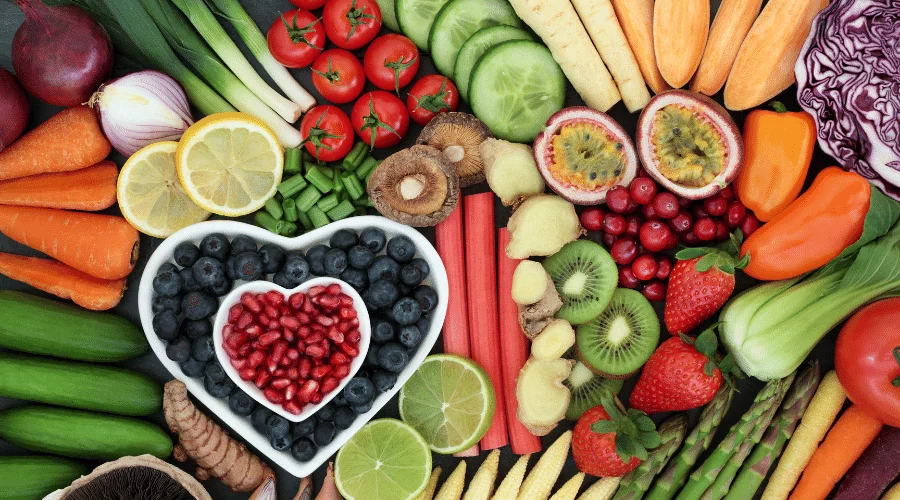
The anti-inflammatory diet: get rid of inflammation
You’ve certainly heard about the anti-inflammatory diet before and the benefits it could have on your body.
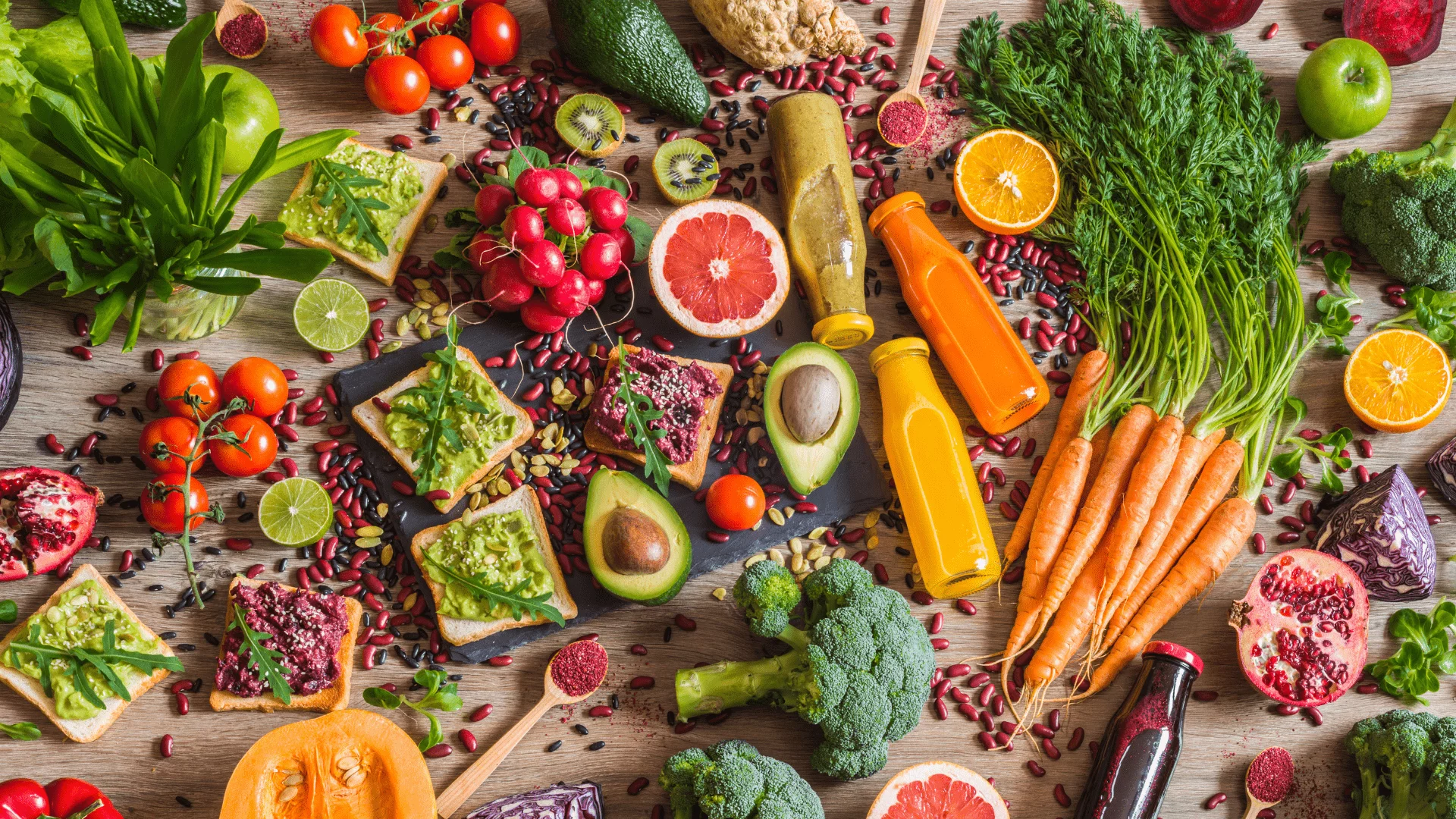
The complete beginner’s guide to veganism
Even though you can absolutely be healthy on a diet that includes animal products, the scientific consensus shows that increasing your consumption of plant-based foods is what is best for health.

Physical vs emotional hunger—learn the difference
You may be aware that physical hunger is not the only type of hunger that exists. There are actually two main types of hunger: physical hunger and emotional hunger



Comments are closed.